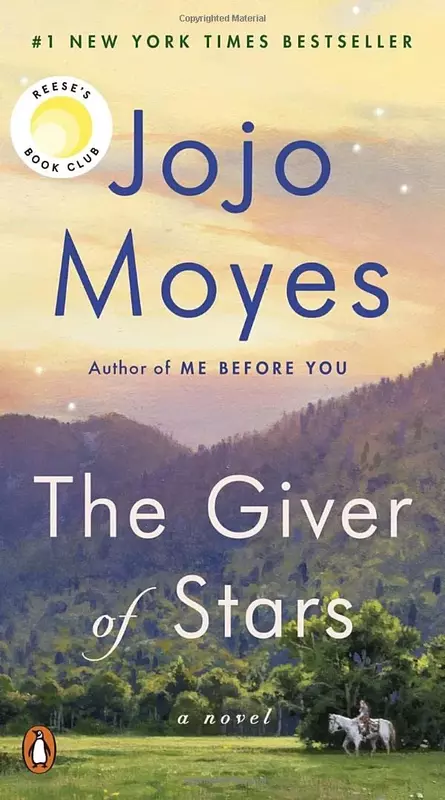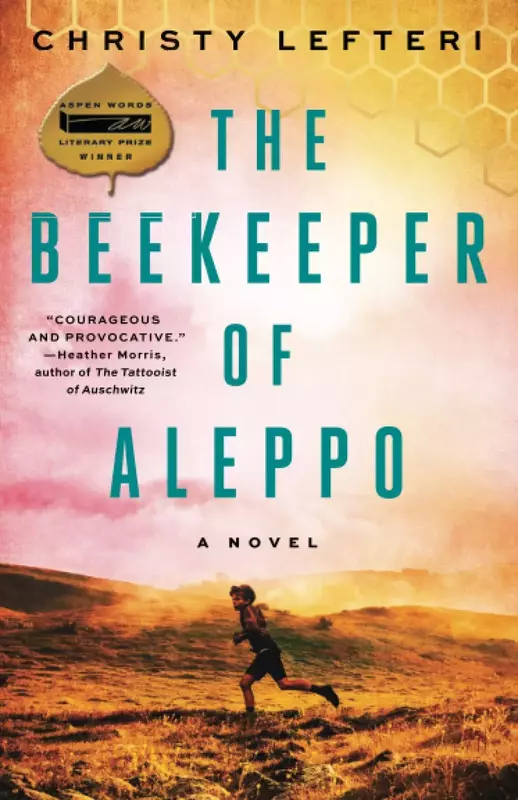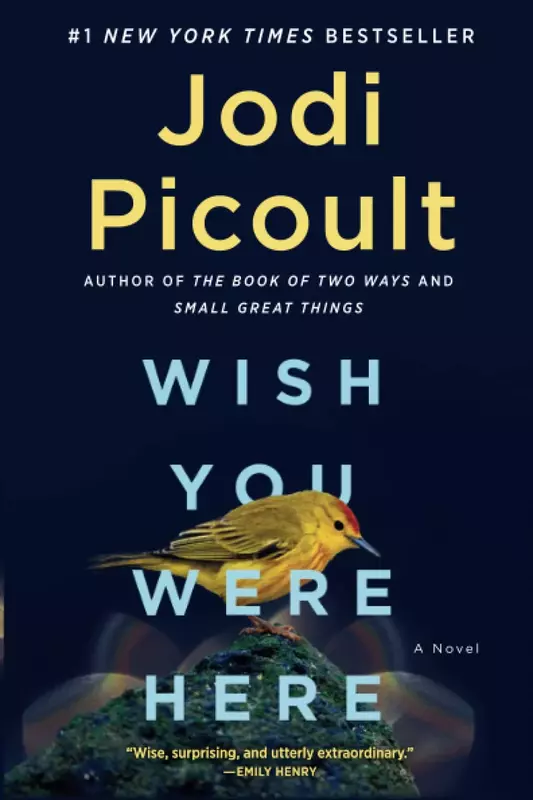This post may contain affiliate links. Read more here.
Book club questions for The Sweetness of Water by Nathan Harris the aftermath of the Civil War and the difficult process of reconciliation and healing in the American South.
As you delve into the story of Prentiss and Landry, two brothers seeking to rebuild their lives after the end of slavery, and the Georgia farmer and his wife who offer them refuge, you’ll be confronted with powerful questions about justice, love, and the meaning of freedom. At the same time, the novel also explores the forbidden romance between two Confederate soldiers, and the devastating consequences of their actions for the entire community.
Harris is a masterful storyteller, and his writing is both lyrical and deeply empathetic, drawing the reader into the inner lives of his characters with a rare grace and sensitivity. His debut novel is a tour de force of historical fiction, evoking the complexity and nuance of a crucial moment in American history with vividness and insight.
So, whether you’re a history buff, a lover of literary fiction, or simply someone who enjoys a great story, The Sweetness of Water is sure to provide ample material for lively discussion and reflection.
Thank you for being here and I hope you will enjoy my book book club questions for The Sweetness of Water. ✨
The Synopsis
In the spirit of The Known World and The Underground Railroad, an award-winning “miraculous debut” (Washington Post) about the unlikely bond between two freedmen who are brothers and the Georgia farmer whose alliance will alter their lives, and his, forever.
In the waning days of the Civil War, brothers Prentiss and Landry—freed by the Emancipation Proclamation—seek refuge on the homestead of George Walker and his wife, Isabelle. The Walkers, wracked by the loss of their only son to the war, hire the brothers to work their farm, hoping through an unexpected friendship to stanch their grief. Prentiss and Landry, meanwhile, plan to save money for the journey north and a chance to reunite with their mother, who was sold away when they were boys.
Parallel to their story runs a forbidden romance between two Confederate soldiers. The young men, recently returned from the war to the town of Old Ox, hold their trysts in the woods. But when their secret is discovered, the resulting chaos, including a murder, unleashes convulsive repercussions on the entire community. In the aftermath of so much turmoil, it is Isabelle who emerges as an unlikely leader, proffering a healing vision for the land and for the newly free citizens of Old Ox.
With candor and sympathy, debut novelist Nathan Harris creates an unforgettable cast of characters, depicting Georgia in the violent crucible of Reconstruction. Equal parts beauty and terror, as gripping as it is moving, The Sweetness of Water is an epic whose grandeur locates humanity and love amid the most harrowing circumstances.
In love with books? Try audio books or writing classes
for free for 30 days.✨
Selected Reviews for The Sweetness of Water
“As I read this masterful novel I kept thinking—this young 29-year-old is a first-time author, so how did he do this?… As the best writers can do, Nathan takes us back in time, and helps us to feel we are right there with Prentiss and Landry as they get their first taste of freedom. I rooted for them, and feared for them too.”―Oprah Winfrey, Oprah Daily
“This debut novel astonished us as much for its wise, lyrical voice as for its dense realization of a fictional small town in the American South at a rarely written-about moment, the immediate aftermath of the Civil War. We were incredibly impressed by the way it probes themes of trans-historical importance—about race, sexuality, violence, and grief—through meticulously-drawn characters and a patient examination of their relationships.”―Booker Prize committee
“Rich prose and such a beautifully imagined time and place… Amazing book by any account and that it’s a first novel makes it even more to be treasured.”―Bill Goldstein, NBC New York
“In the right hands, historical fiction can often capture the truth of our own times more successfully than many contemporary attempts. . . . Harris uses two closely braided stories to explore the violence and the compassion lurking in every human heart. . . . Readers will often forget that this is a debut novel; one of Harris’s greatest gifts, aside from those beautifully wrought sentences, is his empathy, his ability to slip inside the skins of these men and women.”―Financial Times
Book Club Questions for The Sweetness of Water
Spoiler alert: my book club questions may contain spoilers, so make sure to discuss them after you’ve finished reading.
- The title “The Sweetness of Water” is a multi-layered metaphor that appears throughout the novel. What are the different meanings and interpretations of this title? How does it relate to the themes and motifs of the story, such as the search for freedom, the fluidity of identity, and the power of nature?
- The characters in the novel often grapple with the tension between solitude and communication. What are the benefits and drawbacks of silence and speech in this story? How do the characters’ choices to speak or remain silent affect their relationships, their sense of self, and the unfolding of the plot?
- Caleb’s decision to speak out about Prentiss’s death has far-reaching consequences for himself and others. Do you believe he made the right choice? What does his action reveal about his character, his values, and his role in the community? How do other characters’ reactions to Caleb’s words reflect their own biases and fears?
- Isabelle faces a similar dilemma when she confronts the racist remarks of her fellow dinner guests. What motivates her to speak up, and what risks does she face as a result? How does her experience highlight the intersection of gender and race in the novel, and how does it connect to larger social and political issues?
- George and Isabelle’s relationship is central to the novel, and they both undergo significant changes throughout the story. What did you think about their individual character arcs, and how did they grow and change as a couple? Did their experiences help them understand each other better, or did they drive them apart?
- The book deals with heavy themes such as murder, grief, and injustice. How did the author handle these topics, and did you find them difficult to read about? Did you appreciate the way he balanced the dark moments with moments of hope and redemption?
- The ending of the book is left somewhat open-ended, with several characters’ fates unknown. What did you think of the ending, and did you feel like it resolved the major conflicts in the story? Were there any loose ends you wish the author had tied up differently?
- The Sweetness of Water has been compared to other works of historical fiction such as Colson Whitehead’s The Underground Railroad and Toni Morrison’s Beloved. What similarities and differences did you notice between these works, and what did you think made this book stand out in the genre? Would you recommend it to others who enjoy historical fiction, and why or why not?
- Landry’s revelation that he can talk comes at a crucial moment in the story. Why do you think he chose to speak up then, and what effect does his confession have on the other characters and the overall plot? How does his story illuminate the theme of hidden or suppressed identity, and what insights does it offer into the experiences of marginalized groups?
- The novel portrays the aftermath of the Civil War and the struggle for racial equality during Reconstruction. How does the author depict the tension between newly freed African Americans and white Southerners who refuse to accept their new status? Do you think the story accurately reflects the historical realities of this time period?
- George’s quest to find the “beast” raises questions about the nature of truth, perception, and belief. Why does he continue to pursue this goal even after he learns it was a hoax? How does his journey mirror the larger search for meaning and purpose in the novel, and how does it relate to themes of disillusionment, betrayal, and redemption?
- The novel explores a wide range of issues that continue to resonate today, including racism, violence, sexuality, and mental illness. How does Harris use historical fiction to shed light on these contemporary concerns? In what ways do the experiences of the characters in the novel reflect larger societal trends and patterns, and how can we learn from their struggles and triumphs?
- In The Sweetness of Water, the story takes place during the Reconstruction era. How did the setting affect the events of the story? What did it add to the plot and the characters’ lives? Did it make you think about this period of history differently?
- One of the themes of the book is grief and how different characters deal with it. How did the loss of loved ones affect George, Isabelle, and Caleb, and what did it lead them to do? Did they handle their grief in healthy ways? What do you think about the way the author portrayed their emotions?
- The novel features two storylines, one about two former slaves seeking refuge on the Walkers’ farm and the other about two Confederate soldiers who have a secret romance. How did these storylines intersect, and what was the significance of their connection? Did you find one storyline more compelling than the other, or did you appreciate how they complemented each other?
- Prentiss and Landry are two brothers who were sold into slavery as children and then freed by the Emancipation Proclamation. What did their experiences say about the institution of slavery and how it affected families? Did you feel the author accurately portrayed their struggle to find a place in a world where they had never been free?
- Caleb is a complex character who faces many challenges throughout the book. How did his experiences in the war shape him, and what impact did his secret have on the other characters? What did you think of his relationship with August, and did you find it believable? Did you agree with the way his story was resolved?
- The Sweetness of Water explores themes of race, identity, and belonging. How did the characters’ different backgrounds and experiences shape their perceptions of each other? Did you think the book did a good job of portraying the relationships between the white and black characters? What did you think about the way the author addressed the issue of racism?
- The Sweetness of Water features a diverse set of characters, each with their own unique struggles and experiences. How does the author use these characters to shed light on the realities of life during the Reconstruction era? Which character did you find the most compelling or relatable, and why?
- In the novel, we see two different love stories: the forbidden romance between two Confederate soldiers, and the growing bond between George, Isabelle, and the two freed brothers. How does the author use these relationships to explore the themes of love, loss, and forgiveness? Do you think these relationships are integral to the plot or simply distractions from the main story?
- Despite the many challenges and tragedies faced by the characters, the novel ends on a note of hope. How does Isabelle’s final reflection capture the novel’s overall message and tone? What moments of hope, resilience, or compassion stood out to you in the story, and how do they relate to your own experiences and beliefs?
Additional Recommendations
Hope you enjoyed book club questions for The Sweetness of Water by Nathan Harris! Here are some more book recommendations along with their synopses.
The Giver of Stars by Jojo Moyes
From the author of the forthcoming Someone Else’s Shoes, a breathtaking story of five extraordinary women and their remarkable journey through the mountains of Kentucky and beyond in Depression-era America
Alice Wright marries handsome American Bennett Van Cleve, hoping to escape her stifling life in England. But small-town Kentucky quickly proves equally claustrophobic, especially living alongside her overbearing father-in-law. So when a call goes out for a team of women to deliver books as part of Eleanor Roosevelt’s new traveling library, Alice signs on enthusiastically.
The leader, and soon Alice’s greatest ally, is Margery, a smart-talking, self-sufficient woman who’s never asked a man’s permission for anything. They will be joined by three other singular women who become known as the Packhorse Librarians of Kentucky.
What happens to them–and to the men they love–becomes an unforgettable drama of loyalty, justice, humanity, and passion. These heroic women refuse to be cowed by men or by convention. And though they face all kinds of dangers in a landscape that is at times breathtakingly beautiful, at others brutal, they’re committed to their job: bringing books to people who have never had any, arming them with facts that will change their lives.
Based on a true story rooted in America’s past, The Giver of Stars is unparalleled in its scope and epic in its storytelling. Funny, heartbreaking, enthralling, it is destined to become a modern classic–a richly rewarding novel of women’s friendship, of true love, and of what happens when we reach beyond our grasp for the great beyond.
The Beekeeper of Aleppo by Christy Lefteri
Nuri is a beekeeper and Afra, his wife, is an artist. Mornings, Nuri rises early to hear the call to prayer before driving to his hives in the countryside. On weekends, Afra sells her colorful landscape paintings at the open-air market. They live a simple life, rich in family and friends, in the hills of the beautiful Syrian city of Aleppo—until the unthinkable happens. When all they love is destroyed by war, Nuri knows they have no choice except to leave their home. But escaping Syria will be no easy task: Afra has lost her sight, leaving Nuri to navigate her grief as well as a perilous journey through Turkey and Greece toward an uncertain future in Britain.
Nuri is sustained only by the knowledge that waiting for them is his cousin Mustafa, who has started an apiary in Yorkshire and is teaching fellow refugees beekeeping. As Nuri and Afra travel through a broken world, they must confront not only the pain of their own unspeakable loss but dangers that would overwhelm even the bravest souls. Above all, they must make the difficult journey back to each other, a path once so familiar yet rendered foreign by the heartache of displacement.
Moving, intimate, and beautifully written, The Beekeeper of Aleppo is a book for our times: a novel that at once reminds us that the most peaceful and ordinary lives can be utterly upended in unimaginable ways and brings a journey in faraway lands close to home, never to be forgotten.
Wish You Were Here by Jodi Picoult
Diana O’Toole is perfectly on track. She will be married by thirty, done having kids by thirty-five, and move out to the New York City suburbs, all while climbing the professional ladder in the cutthroat art auction world. She’s an associate specialist at Sotheby’s now, but her boss has hinted at a promotion if she can close a deal with a high-profile client. She’s not engaged just yet, but she knows her boyfriend, Finn, a surgical resident, is about to propose on their romantic getaway to the Galápagos—days before her thirtieth birthday. Right on time.
But then a virus that felt worlds away has appeared in the city, and on the eve of their departure, Finn breaks the news: It’s all hands on deck at the hospital. He has to stay behind. You should still go, he assures her, since it would be a shame for all of their nonrefundable trip to go to waste. And so, reluctantly, she goes.
Almost immediately, Diana’s dream vacation goes awry. Her luggage is lost, the Wi-Fi is nearly nonexistent, and the hotel they’d booked is shut down due to the pandemic. In fact, the whole island is now under quarantine, and she is stranded until the borders reopen. Completely isolated, she must venture beyond her comfort zone. Slowly, she carves out a connection with a local family when a teenager with a secret opens up to Diana, despite her father’s suspicion of outsiders.
In the Galápagos Islands, where Darwin’s theory of evolution by natural selection was formed, Diana finds herself examining her relationships, her choices, and herself—and wondering if when she goes home, she too will have evolved into someone completely different.
This edition contains a short story, discussion questions, and an excerpt from Jodi Picoult’s next novel.
Thank you for reading my book club discussion questions & happy reading! ❤️


